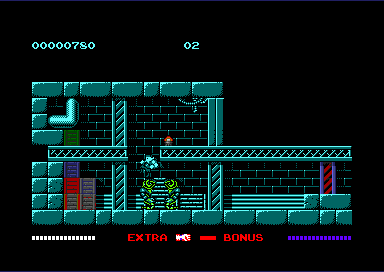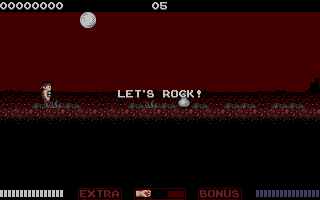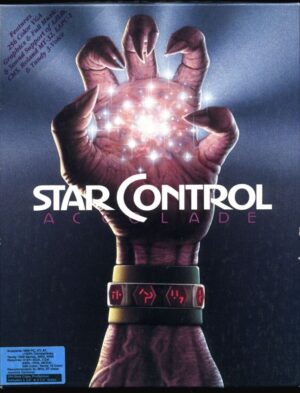Retro Replay Review
Gameplay
Switchblade delivers a classic platforming experience with a strong emphasis on exploration and combat. You guide Hiro through a series of interconnected territories, both inside dark caverns and atop treacherous rooftops. As you progress, sections of the world map are revealed, encouraging backtracking to discover hidden rooms and bonus weapons.
(HEY YOU!! We hope you enjoy! We try not to run ads. So basically, this is a very expensive hobby running this site. Please consider joining us for updates, forums, and more. Network w/ us to make some cash or friends while retro gaming, and you can win some free retro games for posting. Okay, carry on 👍)
Unlike many contemporaries, Switchblade forgoes an in-game currency system. Instead, Hiro starts unarmed and must locate weapons directly within the levels. This design choice heightens tension early on, as every encounter demands careful timing. Holding down the fire button builds up Hiro’s attack power, rewarding patient play and strategic positioning.
The ladder-based navigation adds an extra layer of challenge. Vertical movement forces you to consider enemy placement and potential ambush points. Secret passages often lie just beyond view, and uncovering them can turn the tide of battle with powerful new weapons or health pickups. While the control scheme may feel dated by modern standards, it remains responsive and precise enough for skilled players to execute tricky jumps and combat maneuvers.
Graphics
Visually, Switchblade embraces its 16-bit heritage with richly detailed pixel art. The environments carry a gritty, industrial flair—metallic grates, glowing neon signs, and ominous fortress walls evoke a dystopian world on the brink of chaos. Background layers shift subtly as you move, giving a sense of depth that enhances immersion.
Character sprites are well-animated, with Hiro’s running, jumping, and attack frames flowing smoothly. Enemies display a surprising variety of designs, from humanoid guards to mechanical sentries. Each foe has distinct movement patterns, making encounters visually interesting and easy to differentiate in the heat of action.
Color palettes shift between zones to reflect changing atmospheres; warm, fiery hues dominate the Fire Realm, while cooler blues and purples permeate the Frozen Citadel. Although the screen resolution feels limited by today’s standards, the art direction compensates with bold silhouettes and clear visual cues, ensuring that platform edges, ladders, and hazards always stand out.
Story
The narrative thrust of Switchblade is straightforward but motivating: the sacred Fireblade of the ancient Switchblade clan has been shattered into 16 fragments by the malevolent Havoc. As the heroic Hiro, you embark on a quest to reclaim each piece and restore your people’s honor. This simple premise drives you onward through diverse terrains and escalating challenges.
While the story is minimalistic—relying on brief text interludes rather than cinematic cutscenes—it succeeds in establishing a clear goal. Each recovered blade fragment brings a tangible sense of progress, punctuated by new areas opening on the world map. This structure fosters a satisfying loop of exploration, combat, and reward.
The game’s lore is hinted at through level names and environmental details rather than extensive dialogue. Ancient inscriptions, crumbling statues, and thematic level design allude to a once-proud civilization on the brink of extinction. This approach allows players to immerse themselves in the world and piece together the backstory organically as they uncover hidden zones and weapon caches.
Overall Experience
Switchblade offers a rewarding blend of platforming, exploration, and action that appeals to retro enthusiasts and modern players seeking a nostalgic challenge. Its non-linear level design and weapon-based progression system encourage careful observation and replayability as you hunt down every hidden secret and maximize Hiro’s arsenal.
The game’s difficulty curve can be steep at times, especially when confronting multiple enemies in tight corridors or scaling lengthy ladder sections. However, the ability to discover power-ups and alternate routes provides a sense of agency. Persistent players will appreciate the game’s fair but demanding nature.
With its evocative art style, tight controls, and compelling quest to piece together the Fireblade, Switchblade remains a memorable title in the action-platformer genre. While it may lack the narrative depth and modern conveniences of today’s releases, its core gameplay loop is solid, making it a worthy addition to any collection focused on classic gaming experiences. Potential buyers looking for retro charm and challenging platform combat will find Switchblade an engaging adventure from start to finish.
 Retro Replay Retro Replay gaming reviews, news, emulation, geek stuff and more!
Retro Replay Retro Replay gaming reviews, news, emulation, geek stuff and more!









Reviews
There are no reviews yet.